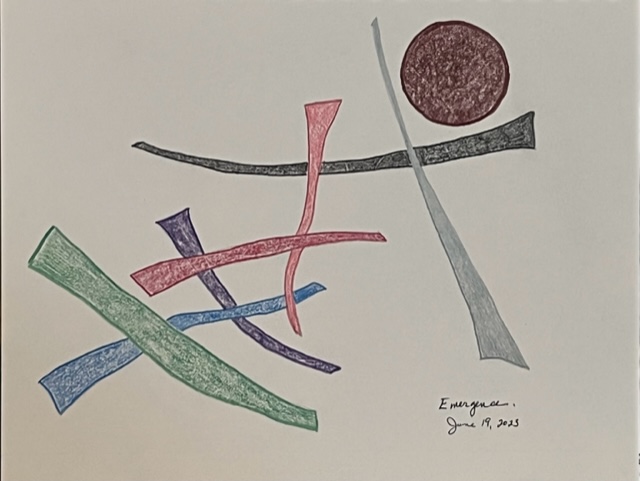For most of my life, I have kept a journal. It’s not been every day for 64 years, but it’s been for stretches of time, writing daily in a notebook about whatever was going on in the internal and external universes of my life. I have not kept the journals. When they are full, they are done, and I get a new one. I take breaks from journaling, and then one day a week or a month or a year later, I feel the urgency to start journaling again. Sometimes I read back through a journal when it’s full, and I gain some insight from that. Sometimes, I re-read and it’s like turning on a movie only to discover that I’ve already seen it and am not terribly interested in watching it again.
If you don’t journal, you might wonder what the point is of all this writing. Ask that of a dozen people who journal and you might get a dozen (or more!) answers. For me, it’s like entering into a conversation with the parts of me that need to remind me that they are there. The experiences we have early in life can cause parts of us that seem to be unwelcomed by the world and people around us to split off or at least take cover in the shadows of ourselves. When I journal, these parts of my self step forward and remind me of who they are and what they are about. I think at this point in my life, I can see how entertaining these internal conversations has invited many of those parts of myself to come out of the shadows and help me be me.
Recently, my daily journaling has taken a new form. Instead of a notebook and a pen, I have been sitting down in front of a pad of blank drawing paper and a collection of colored pencils. I come with no ideas, no plans, no agenda. I breathe into a centered space, and I pick up a pencil, and I begin to draw. Sometimes the drawings are geometric; sometimes they are symbolic; always (so far) they are abstract. Sometimes it’s as much about the colors as the shapes and at other times just the opposite. I am always surprised when the drawing tells me that it’s done, delighted at what has come forth on the paper that day. Then, as a final act of “journaling,” I ask the drawing: do you have a message? And I write as succinctly as possible below the drawing the first thing that comes to mind. Here is my latest drawing.
~Bob Patrick


I hesitate to respond just because I know how deeply personal journals and sketchbooks can be. I have 12 full sketchbooks/journals so far, beginning in 2014 when my mother was murdered. The first journal was rife with discord and pure abundant anger, hidden in the darkest shadow of me. It took an entire journal to seek the edges of the shadow. For me, journaling has evolved into a lighter space, a more open space where the shadows are controlled by my own drawing techniques and placement that makes sense within the context. In writing, I try to include a style of a memoir so that I can communicate to my loved ones when I myself become a memory. Journaling is great exercise for the soul, going deep, going “intra”. At the same time, journaling can help clarify the essential facts of a situation, and perhaps even coax the “Beyond” to “Emerge” onto our ready sheet of paper.